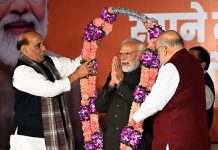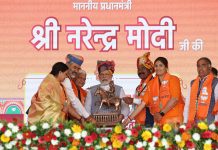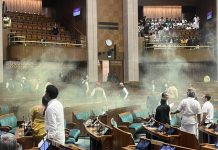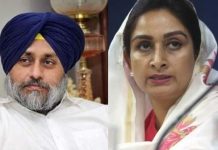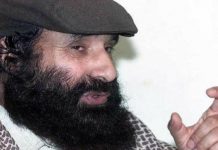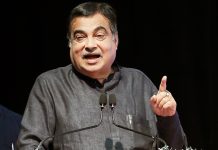At a time when Sufi music is experiencing unprecedented popularity in the world, tragedy has struck the first family of Sufi music in India. Yes, the younger of the two Wadali brothers, Pyarelal Wadali, is no more. He passed away in a hospital in Amritsar, on March 9 this year, after a cardiac arrest. Seventy five-years-old at the time of his passing, Pyarelal was one of the two significant voices fused into the harmonised sound that we know as the Wadali Brothers — legends in their lifetime. Eight years younger than his brother Puranchand, Pyarelal entered music in a far more focused manner. Puranchand spent as many as twenty five years in the ‘akharas’, preparing to be a ‘pehalwan’ and do ‘kushti’.
 If the elder brother would be at the akharas, young Pyarelal would be playing the role of young Krishna in the temple Raasleela, that earned him some money in the form of donations from the general public. It is said that the Raasleela performance, that would attract a large audience from as many as ten villages, assured the family a steady income. But the transformation from dancer to singer was midwifed by a Sufi saint, Baba Mastan Shah, who advised him to remove his ghunghroos and go in for singing Sufiana kalaam. The spiritual connection remained intact as he now started singing in the famous temples of Amritsar area including the Durgiana temple, and even local jagratas — all night singing sessions in the honour of Gods and Goddesses.
If the elder brother would be at the akharas, young Pyarelal would be playing the role of young Krishna in the temple Raasleela, that earned him some money in the form of donations from the general public. It is said that the Raasleela performance, that would attract a large audience from as many as ten villages, assured the family a steady income. But the transformation from dancer to singer was midwifed by a Sufi saint, Baba Mastan Shah, who advised him to remove his ghunghroos and go in for singing Sufiana kalaam. The spiritual connection remained intact as he now started singing in the famous temples of Amritsar area including the Durgiana temple, and even local jagratas — all night singing sessions in the honour of Gods and Goddesses.
Born and brought up in their ancestral home in the sacred village of Guru ki Wadali near Amritsar, known to be a village that has been blessed by the stay there of the fifth Sikh Guru, Guru Arjan Dev, himself the architect of Gurmat Sangeet and an exceptional practitioner of music, as well as the birth place of the sixth Sikh Guru, Guru Hargobind ji, the brothers were the fifth generation of musicians dedicated to singing the poetry of Sufi and Bhakti saints. They were adept at all kinds of singing for having practiced intensely and without distraction from films, radio, books and even school, since both brothers were unschooled, but were rich in musical knowledge. They excelled in almost all genres, from Sufi qalaam, qawwali and kaafi, to bhajans, shabads and ghazals.
They received their initial training from their father, Thakur Das, and then the elder of the two Wadali brothers, Puranchand, learnt classical music under Pandit Durga Das of Amritsar, Ustads Ashiq Ali Khan, and Machchan Khan as well as from the Patiala gharana titan Ustad Bade Ghulam Ali Khan. Puranchand learnt the hard way with beatings and service to his Gurus. In contrast, Pyarelal learnt in a more loving and nurturing environment from his elder brother, whom he virtually worshipped.
For years they performed in their village without microphones, showing the power of their strong voices. The very first musical performance for which they went outside their village was at the Harballabh Temple in Jallandhar in 1975. The brothers were keen to perform at the Harballabh Sangeet Sammelan but was not allowed to sing because of their rustic appearance and clothing. Disappointed at being rejected, they decided to use the opportunity and travel to make a musical offering at the Harballabh temple, where an M.N. Bhatia of All India Radio, Jalandhar, heard them and recorded their first song.
It was rather apprehensively that they sang during their radio debut at the All India Radio, for here they sang for the first time to a microphone and no audience; they feared that the mic would “take away” their voice. It was only later that they realised that the microphone added to their voice. Yet they were delighted when many years later, they got an opportunity to sing at Fatehpur Sikri where once Emperor Akbar would hear Tansen sing. Those were times when there was no artificial amplification. There they sang Akbar’s favourite Raag Darbari without microphones but with perfect coordination, picking up each other’s ‘taans’ seamlessly, to complete them and to show to the world how they may be two-bodied but were one in music.
The Wadali brothers are intertwined in their music and their laughs. Pyarelal Wadali was the quieter of the two, especially since the more loquacious one, elder brother Puranchand, was a treasure trove of traditional poetry and a bundle of jokes that reflected his earthy sense of humour. But always the first to catch on to his humour was none other than his usually more serious younger brother, Pyarelal.
Though they were happiest singing for live audiences, draped in their defining black, red and green Naga shawls, they didn’t really like recordings. Why not? “Because bade Bhaiya (elder brother),” claimed the younger brother, affectionately called Pyare (Beloved), “thought that if we made recordings people would not invite us for concerts”. Yet their discography, even though mostly based on their concerts, is impressive. It includes ‘Aa Mil Yaar’, ‘Paigham-E-Ishq’, ‘Ishq Musafir’, ‘Folk Music of Punjab’, ‘Yaad Piya Ki’ and ‘The Best of Wadali Brothers’. Actually it was only after entering the new millennium that they made their first recordings and also sang their first film songs. In fact, their first song was ‘Darda Marya’ in 2003, for Gulzar in the film Pinjar. Subsequently, they sang such unforgettable songs like ‘Rangrez Mere’ from the 2011 Kangana Ranaut hit film Tanu Weds Manu and ‘Ik tu hi tu’ from the Sonam Kapoor, Shahid Kapur 2011 starrer Mausam.
Despite the fact that they are a household name, wherever Sufi music is loved around the world they have kept themselves cut off from the cut-throat commercial circuit and consciously close to their roots. For several years they did not own a car preferring to cycle to where they were invited. They believed that it kept them in touch with their friends and neighbours, for whom they would shout out a greeting, or hop off to exchange a warm hug or a few words with. There is a story that cricketer Shikhar Dhawan, a Sufi music junkie, likes to tell about how he chanced upon Pyarelal Wadali at an airport. Being a fan, Shikhar went up to him and introduced himself. Pyarelal apparently had no clue that he played cricket for India. But when Shikhar Dhawan touched his feet, with disarming innocence and simplicity, Pyarelal extended to him a warm invitation to lunch.
Their fans are found around the world — from Birmingham, UK to Houston, Texas and all the way down under. Their recordings for Coke Studio got millions of hits. Their episode on the popular Kapil Sharma Show attracted over three million viewers. They have inspired a whole generation of listeners and singers. Sonny of the USA-based Riyaaz Qawali group admits to “the debt that they owe to the Wadali brothers”.
The distinctiveness of their music, that brings to their ever-growing audience the ‘baani’ of Sufi saints like Amir Khusro, Bulle Shah, Ghulam Farid, Shah Hussain, Sultan Bahu, Kabir and Guru Nanak, is in the classical base of their music, and the strong Bhakti emotion. Believing that their music makes you one with God, the two have been critical of those who claim to sing Sufiana Kalam but present their albums with a bevy of dancers surrounding them.”How can that be Sufiana?’’ always questioned a perplexed Pyarelal.
Over the years, what was remarkable is how they learnt to adapt their music to the expectations from their audience. “There is an advantage of singing Sufiana Kalam. Though it has a structure and composition like classical music, it is so vast that one can branch off in any direction — singing fast beats for the younger crowd or slow rhythmic ones for a more sober audience,’’ maintained Pyarelal.
The brothers did not run a formal academy but taught many youngsters who proved to them that they are serious about their pursuit of music and that they recognised its spiritual powers. Amongst their students are Puranchand’s son Lakhwinder and Pyarelal’s son Satpal.
Pyarelal has had more than one near-death experiences. Twice he had severe cerebral fever attacks. While through the power of western medicine, he recovered the first time, his brother is convinced that the second time round it was a case of ‘deus ex machina’ as a Sufi saint healed him, leading the brothers to dedicate themselves with greater fervour to a divine calling of their music.
Their popularity brought them jointly the coveted Sangeet Natak Akademi award in 1991. But the Padma Shri in 2005, went only to Puranchand. He put up a big fight before the government claiming that it should be given to the two brothers as one unit. Eventually, the government had its way on the argument that he deserved it before his disciple, Pyarelal, but it certainly testifies to the deep love between the two brothers and how Puranchand did everything to protect and ensure that his beloved Pyarelal got a good and fair deal. That is why today we cannot imagine what the senior Wadali is going through as he says the final farewell to his ‘jodidaar’ Pyare!
I cannot believe that the duo whose rendition of the Heer, the farewell song for the bride, in the melody of the ‘sada suhagan’ raag Bharavi, which never failed to move me to inconsolable sobs, will never be hard again. I cannot forget how each time that they caught me crying uncontrollably they would always apologize for the ‘zulm’— torture they thought they were doing to me. It was certainly their doing. They had that power. Rest in peace, Pyarelal ji! Today, the Heer sings for you.
letters@tehelka.com

